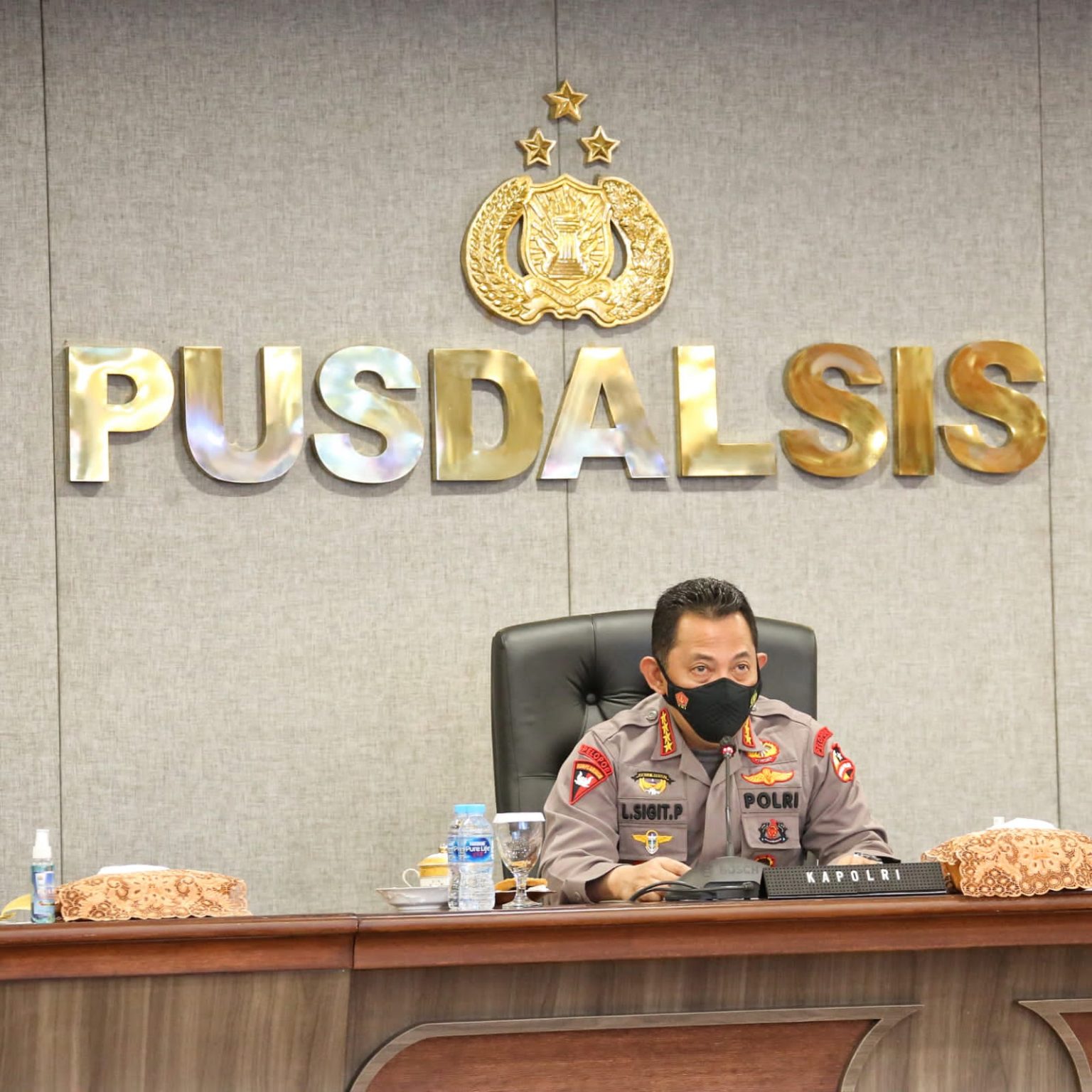The National Police Chief, General Listyo Sigit Prabowo, sent a telegram addressed to all ranks of the Regional Police Chief in Indonesia.
Telegram number ST / 2162 / X / HUK2.9 / 2021. The telegram was published today and signed by the Head of the National Police Propam Division Inspector General Ferdy Sambo on behalf of the National Police Chief.
There are 3 cases highlighted in this telegram from the Head of the Resort Police, including the case of Percut Sei Tuan from the Medan Polsek which is suspected of being unprofessional and proportional in handling cases of abuse, the case of a Tangerang police member beating a student at a protest, and the case of a member of the Satlantas Polresta Deli Serdang molesting a motorcyclist. .
There are 11 indications from the National Police Chief to handle the 3 cases.
“To deal with cases of excessive violence that occur and to ensure that treatment is carried out procedurally, transparently and correctly”, we read in the first paragraph of Quaestor’s telegram.
In addition, the National Police Chief also called for firm action against violators. Public relations officials were also urged to provide open and clear information to the public regarding the handling of cases of excessive violence.
“Enforce the law firmly and decisively against members of the National Police who commit violations in cases of excessive violence against the community,” reads the second point.
The full text of the National Police Chief’s telegram is as follows:
In connection with the foregoing, as part of efforts to overcome and prevent the recurrence of cases of excessive violence committed by state police officers and security law, as well as a sense of justice, the Kapolda is ordered to act as follows:
1. In order to take over cases of excessive violence that occur and ensure that the handling is carried out procedurally, transparently and fairly;
2. To enforce the law firmly and strictly against members of the National Police who commit violations in cases of excessive violence against the community;
3. Ordering the Head of Public Relations to provide information to the public openly and clearly about the handling of cases of excessive violence that occurred;
4. Provide instructions and directions to members in operational functions, especially those dealing with the community so that when carrying out security or police actions, they must comply with the police professional code of ethics and uphold human rights;
5. Emphasize that in the implementation of coercive measures, the SOP on the order of police actions must be followed in accordance with the Regulation of the National Police Chief Number 1 of 2009 concerning the Use of Force in Police Actions;
6. Emphasize that the implementation of security activities and police actions that have very high vulnerability must be preceded by direction from the leadership of the troops, simulation exercises or tactical wall game mechanisms to ensure that all members involved in activities understand and master technical, tactical and strategic actions;
7. Strengthening supervision, security and assistance by the Propam function, both openly and privately during the implementation of security for rallies or forced activities that are vulnerable or involve the masses;
8. Optimizing prevention and guidance for Polri members so that in carrying out their duties they do not take arrogant actions, unsympathetic attitudes, harsh words, persecution, torture and excessive acts of violence;
9. Ordering operational functions, especially those dealing directly with the community, to increase the role and ability of first line supervisors in carrying out inherent supervision activities and controlling activities directly in the field;
10. Order the Dir, Kapolres, Kasat and Kapolsek to strengthen supervision and control in every use of police force and action to comply with SOPs and applicable regulations;
11. Provide punishment/firm sanctions to members who are proven to have violated discipline/code of ethics and criminal acts, especially those related to excessive violence, as well as to direct superiors who do not carry out supervision and control according to their responsibilities.









